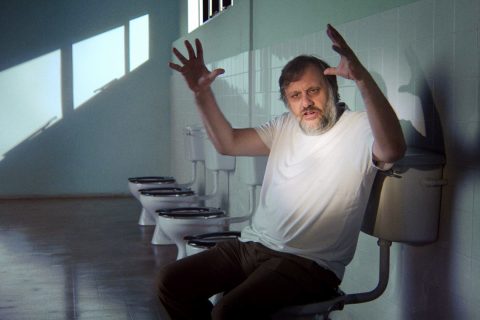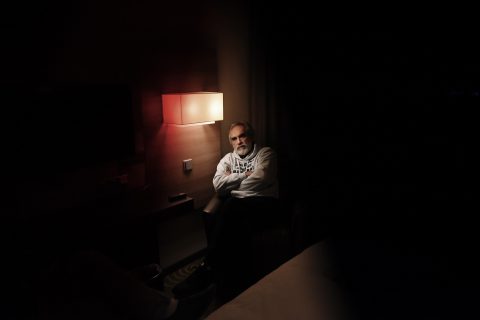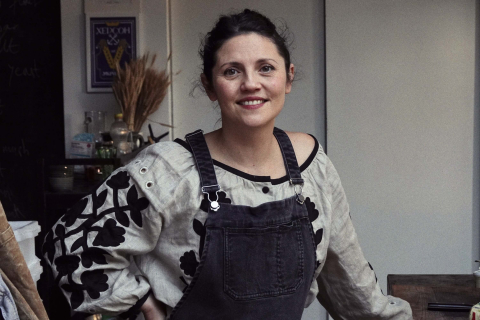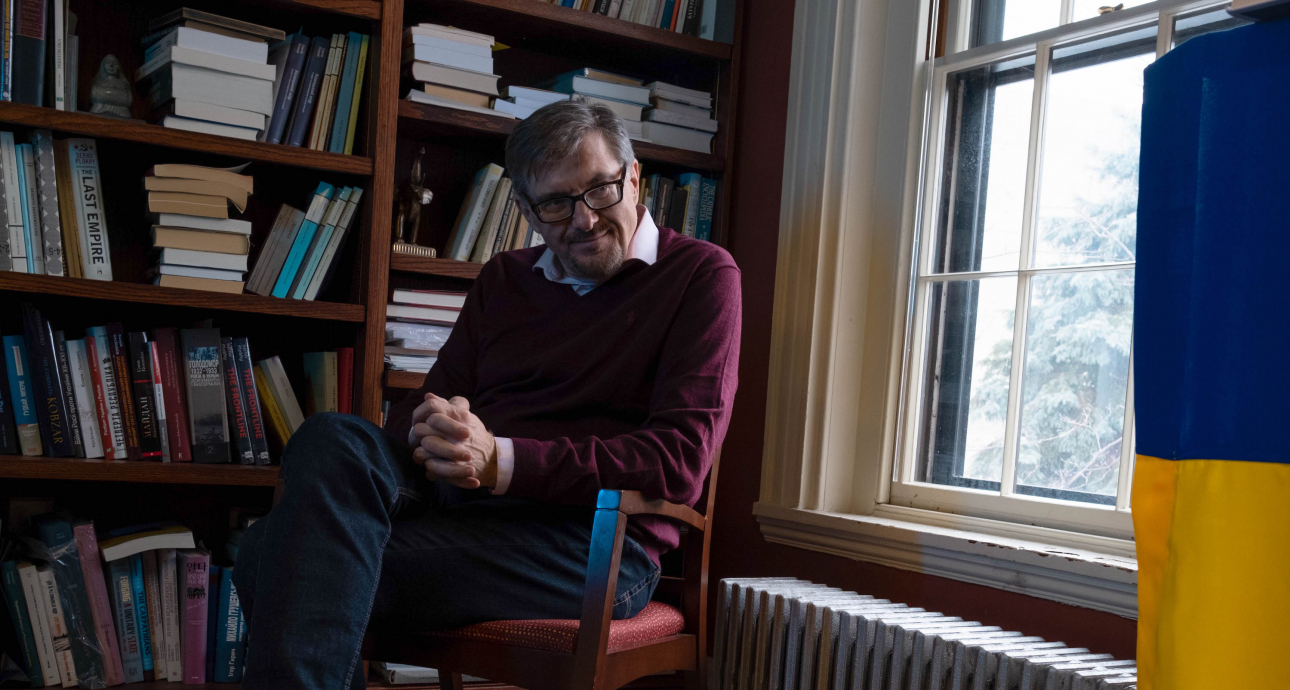
‘We Have to Work with Those Who Come to Power after Putin’: Serhii Plokhii on the War of Myths, the Nation’s Birth, and Language Bans
Serhii Plokhii is the professor of Ukrainian history at Harvard University and one of the most prominent Ukrainians worldwide. He studied in Dnipropetrovsk, went to Canada under an academic mobility programme, and emigrated in the 1990s. Now he lives and works in the USA.
His academic interests are pretty broad, encompassing everything from the Kyivan Rus to Soviet Ukraine’s history. Also, he authored over a dozen books, in which he takes a detailed look into the genesis of Slavic nations and the history of the Ukrainian Insurgent Army (UPA).
In his interview for Bird in Flight, the historian talked about how he made it abroad in the Soviet times, why the Russian World War II myth works better than the Ukrainian Bandera myth, and why Ukrainians should speak to Russians despite the war.
I won’t dispute or protest it, though I believe I am among the Ukrainian historians and intellectuals who are rather more or less known worldwide.
In many ways, my current popularity is due to Ukraine now defending itself and the rest of the world.
Do you often visit Ukraine?
I last visited in the autumn before the full-on invasion. However, I do plan to return.
You worked at Columbian University and Harvard University in the mid-1980s. How did it happen, considering it was still the Soviet time?
The answer lies within the university I studied at and later worked for. It used to be officially called Dnipropetrovsk State University, named after the Tercentenary of the Union of Russia and Ukraine and decorated with the Order of the Red Banner of Labour and worked under the direct supervision of the Union-level ministry. Why? Because it carried out missile research, closely connected to Pivdenmash.
The exchange quotas were passed down directly from Moscow. That’s how it was in 1986–1987. My trip happened after the first meeting between Gorbachev and Reagan. The rumour has it Gorbachev agreed at that meeting to include humanities scholars into the group eligible for the US academic exchange programmes. I was the fourth or the fifth from my faculty to go abroad. Our group included two historians and three economists, if I remember correctly. Then the Americans kept sending humanities scholars and the Soviets — engineers, for obvious reasons.
Why were you chosen?
I passed a rather stringent selection process because I was a candidate of sciences below 35 years old and married, as well as held a specific position at my faculty. Being married was essential because those having families and children were believed unlikely to flee to the West.
When did you decide to stay in the West?
I first thought about that very moment in 1986. However, I quickly dismissed that thought, as I was reluctant to abandon my family, parents, and colleagues. Remaining there was akin to jumping ship — there was no way back after that.
Remaining in the West was akin to jumping ship in the Soviet times — there was no way back after that.
Still, you emigrated in the early 1990s. As a historian, did you regret leaving the country where history was happening?
It was 1991–1992. The Iron Curtain was no more. First, I went to Canada for a semester (four months), during which I pursued my further training. Then I came back for my family and returned with them for a longer time. I lived in both Canada and Ukraine for four years, working as a department chair at the Archaeography Institute in Kyiv. That is to say that I moved gradually and witnessed all the changes.
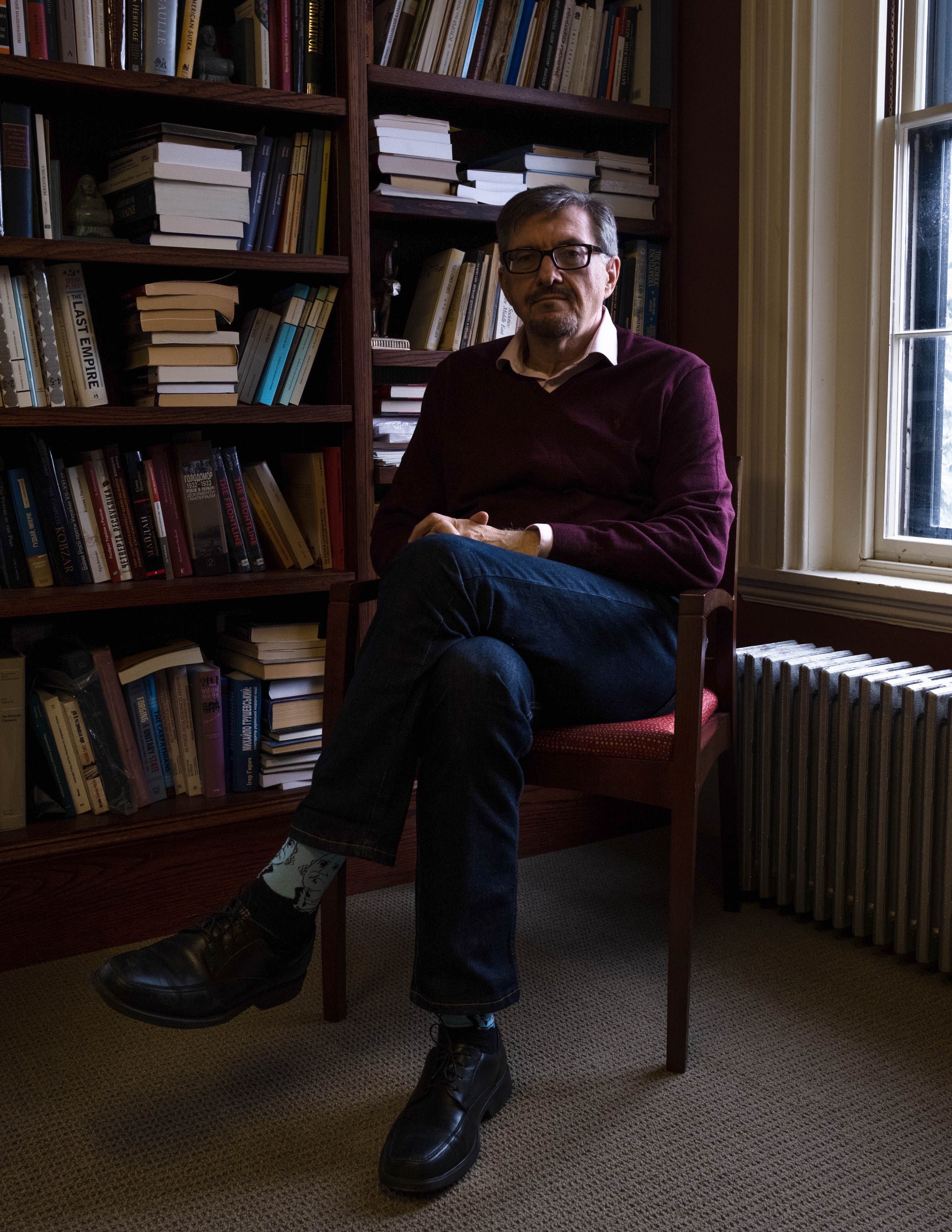
Is it hard to be an emigrant?
I was lucky to move to the country but retain my profession and circle of colleagues. Still, emigration was an immense stress.
The difficulties started with the language. You might be under the impression that you are pretty fluent in English in your country, but nobody would understand you abroad. It was a shocking realization.
Another problem is that you must again prove that you are worth something. I arrived in Canada as a Doctor of Science, Department Chair, and Dean, and I still had to start from scratch. It was a psychologically trying thing. It takes character and understanding why you do it to complete this rite of passage.
I arrived in Canada as a Doctor of Science, and I still had to start from scratch.
Did you understand your ‘why’?
I did, and very clearly at that. Besides the family and personal well-being, I felt I could better fulfil myself as a historian in Canada. Moreover, my decision to stay there was professionally motivated above all.
Remember, though, that we are talking about the mid-1990s — a difficult period both materially and intellectually. From a professional point of view, working for the University of Alberta, which had many Ukrainists holding lots of discussions and seminars, was much more productive than going back to Dnipropetrovsk.
Have you ever regretted emigrating from Ukraine?
Many times.
Entering Western academia is hard for the westerners themselves. There is no central planned economy here, and employment is not guaranteed. I don’t know the percentage of PhDs who never work in their chosen field, but it’s probably high enough. It’s exponentially more challenging to get into Western academia for those who come from elsewhere. At some point, you start doubting if it’s really worth the effort and consider returning home.
Are you a US citizen now?
I am.
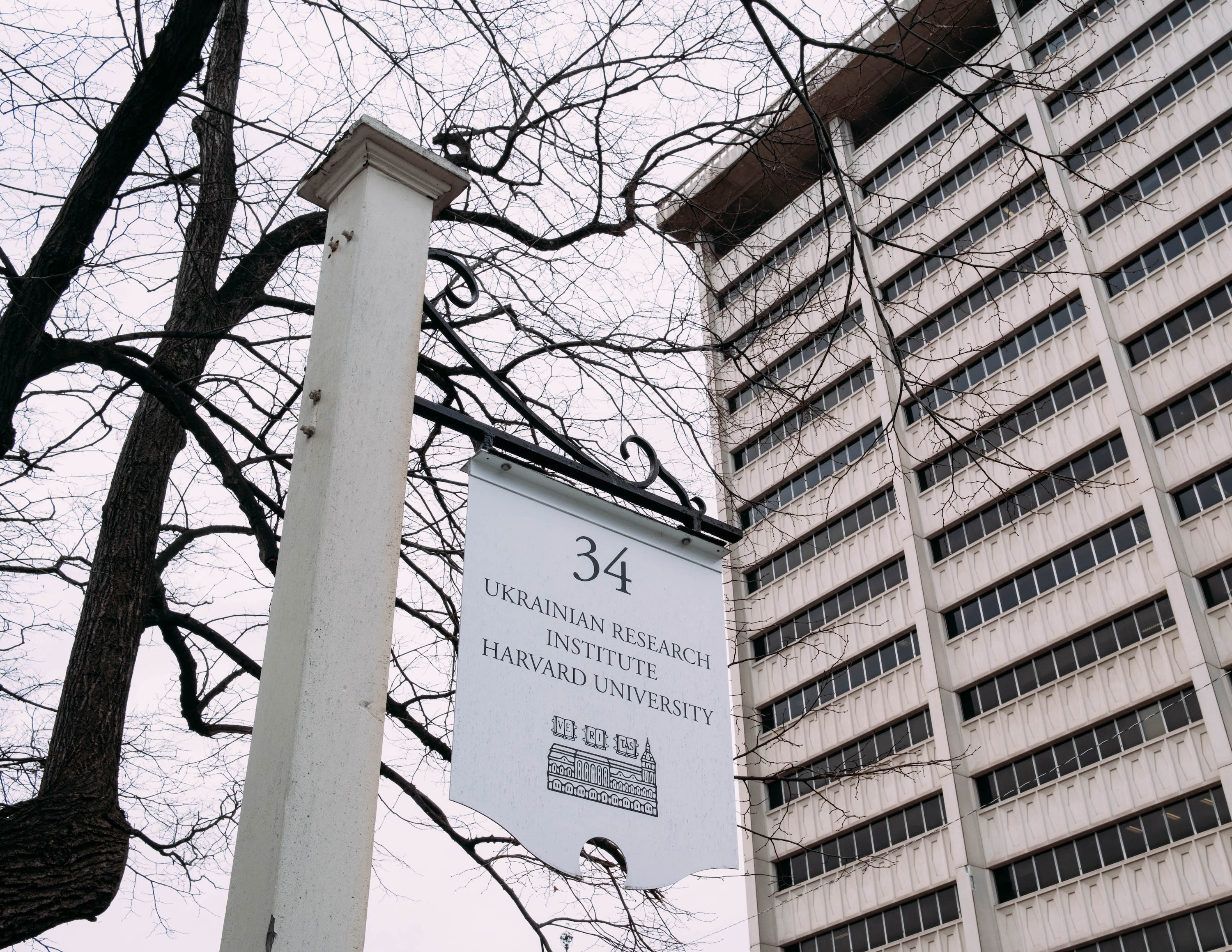
Now to the hard questions. Everybody is talking about the Ukrainian nation now, about whether it has been born. You wrote a lot about nations. How would you explain to a ten-year-old what the nation is?
A nation is the group of people you associate yourself with. A nation is the people you don’t necessarily see around but who share your fears and hopes, for instance, that an air raid alarm will end soon.
And here’s a more complex definition. A nation is an imaginary community that defines itself through everyday plebiscites, e.g., today we all vote for being a united whole, while tomorrow we might decide differently.
A nation is an imaginary community that defines itself through everyday plebiscites.
According to Ernest Gellner, nationalism is not just something radical. It’s a principle according to which the national and cultural borders coincide with the political ones. In the minds of the Ukrainians in 1991, their political borders were those of the Soviet Union. After the second referendum, they became those of Ukraine.
The awareness about national unity sharply increases in crisis situations. Since 2014, the process has been accelerated by the trauma of war, loss of territories, and refugees, the polls show.
Nations are not permanent, from the looks of it. If we feel like a nation now, it doesn’t mean we will in five or ten years. Am I right?
Perhaps, not in five or ten years, though any metamorphosis is possible 500 years down the line. States and political entities don’t last forever.
Why is the notion of a nation dating back to the end-19th century still relevant?
This construct was invented even earlier. We know from the Bible that Moses led his people for 40 years through the desert. He didn’t represent a state, and his people had no statehood. This is a model of ethnoreligious or ethnoconfessional unity.
In my view, there is a more concrete and intelligible definition to describe this phenomenon, and it’s the modern nation. It encompasses not only elites but all strata, even the lower ones. This is what the emergent nations were like in the 19th century, when newspapers and transport spread across the world.
What’s the connection here?
Everybody is reading the same newspapers, and they see themselves as a united whole through the text they read. Being able to get from Kyiv to Donetsk by train instead of by horse carriage contributes to the feeling of unity, too.
In the 19th century, the idea of being loyal to a monarch or monarchy was replaced by that of loyalty to the people. It became a driver for the reformatting of the global political map. Empires crumbled, and nation-states emerged in their place, drawing their legitimacy from the idea of an ethnic and, eventually, political nation.
What is a political nation?
It’s a nation where people realize their unity despite speaking different languages and belonging to different religions and ethnicities. What we have in Ukraine nowadays is a classic political nation. Fighting in the war, we speak both Ukrainian and Russian. However, we do realize that we are united.
Fighting in the war, we speak both Ukrainian and Russian. It’s a classic political nation.
But can you have a nation without having to speak a common language?
Without a language, there can be no person; without people, there can be no nation. However, can a nation exist that uses more than one language? I totally can, and it can use two or even three languages.
A model in which the language equals culture and the culture equals nation has its roots in Germany. Proposed by Herder, it took shape in the end-18th–early 19th century and became predominant for some time.
If you look at the borders of Ukraine as seen during the Revolution of 1917, you’ll know they are based on a linguistic map.
We had a few unsuccessful attempts at building an independent Ukrainian state based on that linguistic map. Ukraine’s successful, lasting independence came only in 1991, when the political and the linguistic maps didn’t exactly coincide because of the Russification of cities and the loss of certain territories. Still, the idea of the Ukrainian nation got finally realized.
The idea of a multilanguage nation is complicated. In present-day Europe, a nation mostly has one language and one culture. In the most extreme cases, Stalin and Churchill come and redraw the borders of a hypothetical Poland, cutting national minorities (e.g., Ukrainian, German, and Belarusian) away from it.
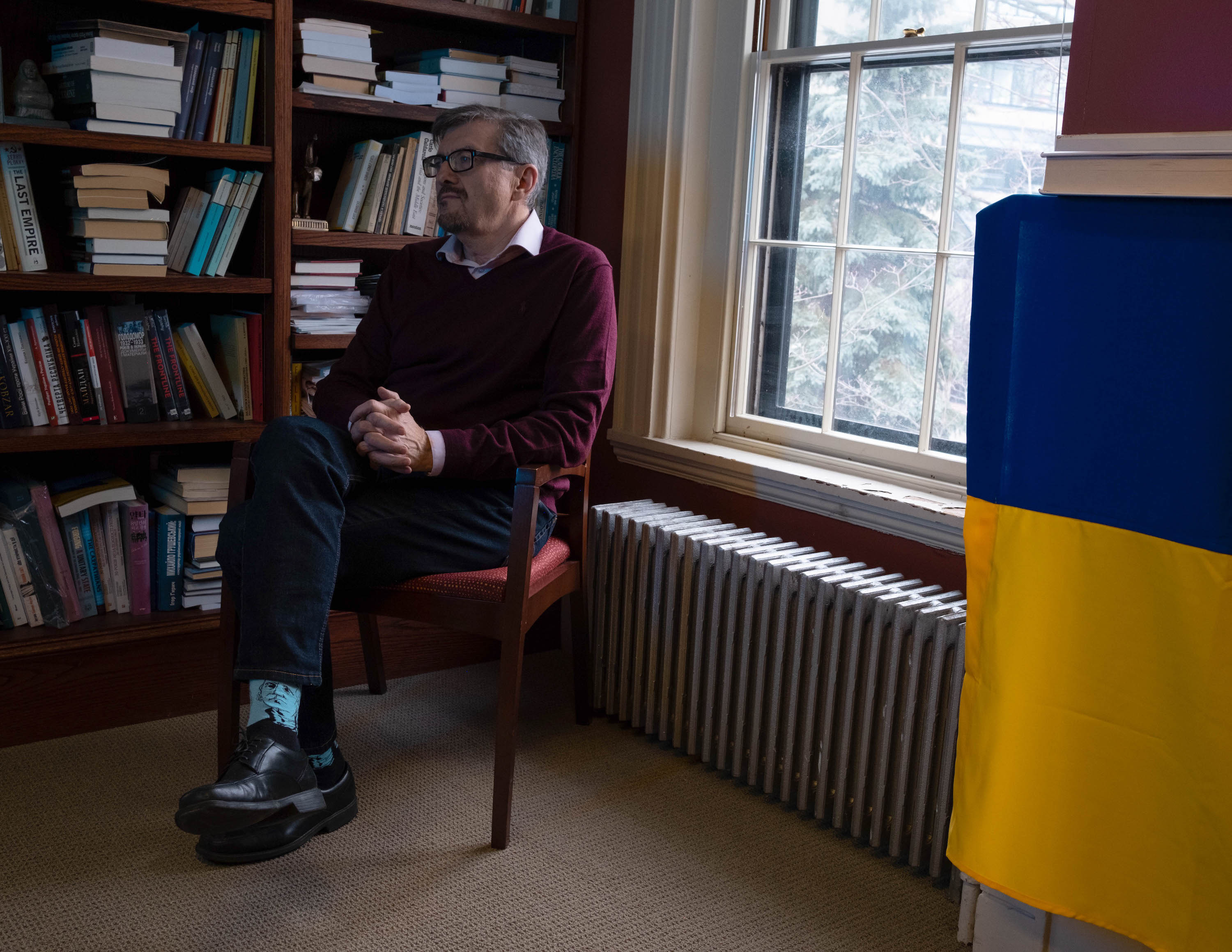
Do you mean Poland’s borders were redrawn because not everybody spoke Polish there?
What I mean is that the underground political organizations of Germans and Ukrainians living in Poland allied with Germany in 1939, and it didn’t exactly help the country endure the war. On a different note, Poland fell primarily because of Germany’s and USSR’s aggression, no doubt about that.
Speaking of the language, Putin tried playing that card twice: in 2014 and in 2022. He rose to power in Russia with a classic Herder model: if you speak Russian, you are Russian and must be loyal to Russia. The formula partially worked in Crimea and Donbas but was beaten in 2022 because Ukraine’s political unity became so strong it couldn’t be shaken by the language issues.
The Ukrainian language is gaining importance nowadays. Most importantly, it happens because people discuss it and make a conscious choice. Forcing people to speak a specific language is a recipe for a nation’s fragmentation.
By ‘forcing’, do you mean the ban on the Russian language?
I do.
What is the fragmentation of a nation?
It’s people opposing their society and state, including its policies and institutions.
The ban on the Russian language may result in some people opposing their society and state.
Ukrainians have now discovered the state for themselves and realized the importance of its institutions, primarily the army. The state’s utility is in that it protects the lives of its citizens as well as their freedoms, which guarantee, among other things, that I can speak any language without ending up in a police van for that.
What do you think about the law prohibiting Russian-language sources in scientific works?
The people promoting it know not what they do and thus make themselves a laughingstock. But I see they are backing down already.
The supporters of that law insist that Russian science, especially that of the Soviet era, was a vehicle for ideology. Why spread the enemy propaganda?
We can have a long talk about it, but here’s the gist of it: I dare the authors of that law to write something on the history of the Khmelnytsky Insurrection or Ukraine’s fight for independence without accessing the former USSR and Russian Empire archives. If they succeed, I am up for continuing this discussion.
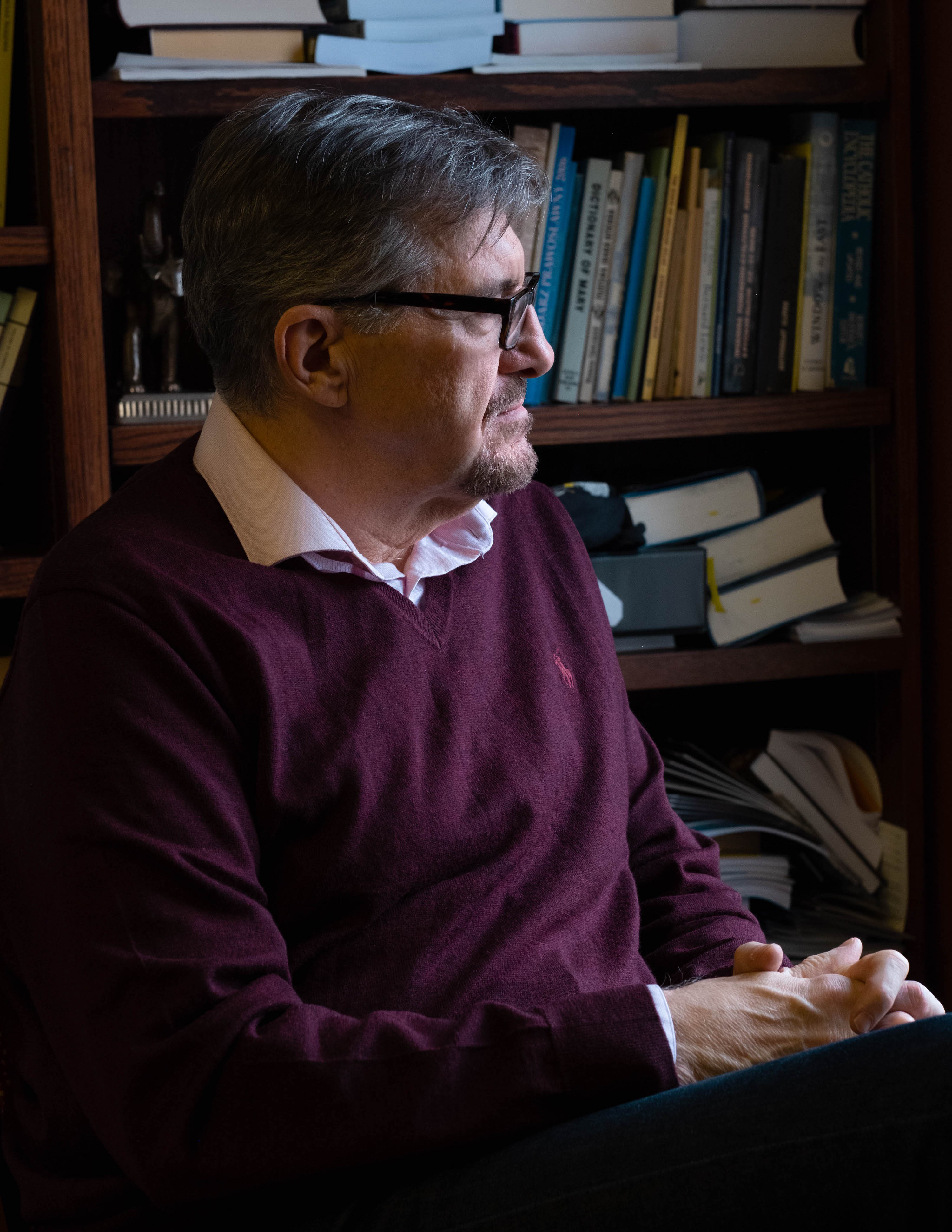
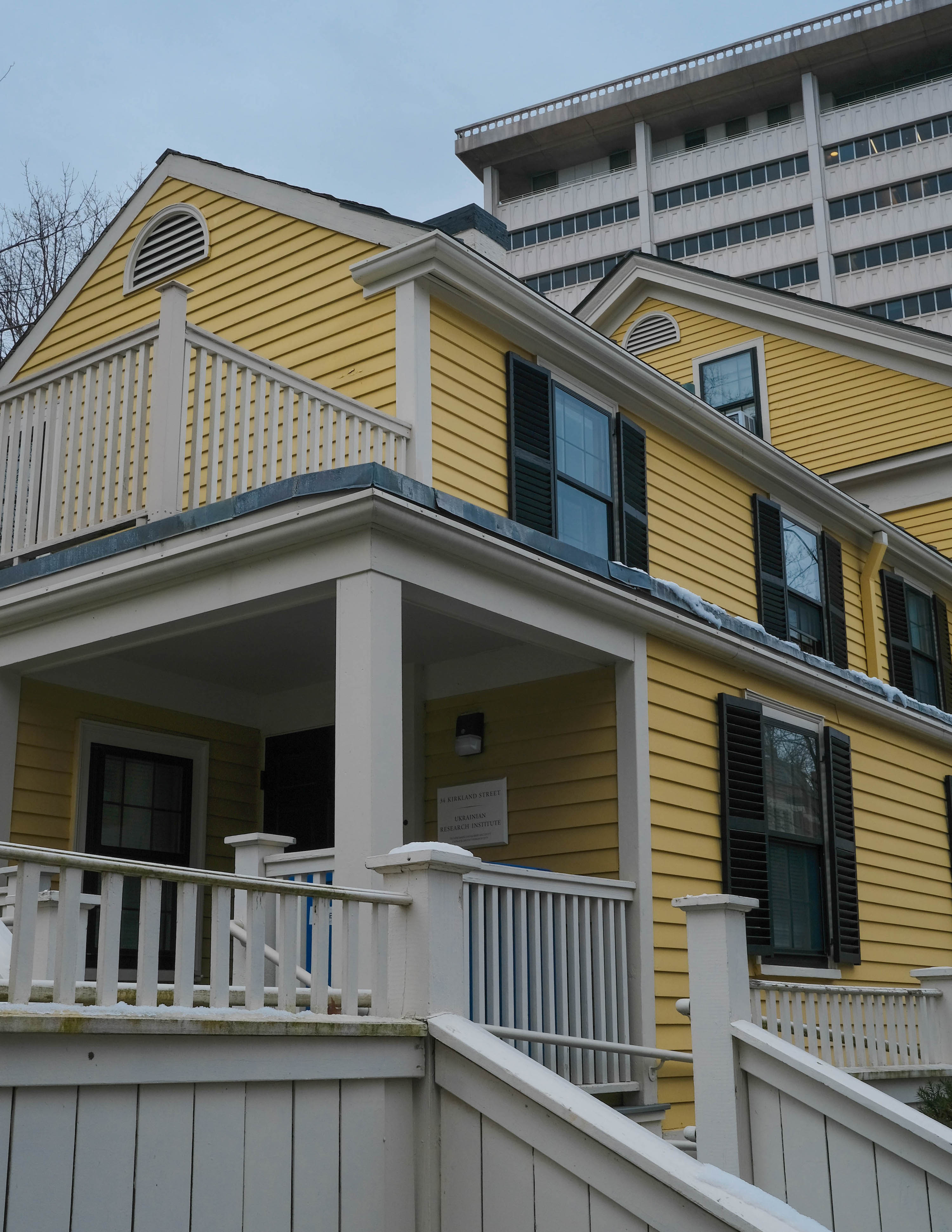
During one interview, you said that Russian culture must be decolonized. Instinctively, I understand what you are talking about. But could you be more specific?
We need to look at Pushkin, Tolstoi, and Russian culture in general from a different angle. We need to understand that among the people who shaped it were the likes of Gogol, too. We need to realize how much Russia imposed certain narratives on other countries, its former provinces and colonies.
In all honesty, I don’t see why Pushkin would be Pushkin should be in a more privileged position than lord Byron when it comes to monuments and street names. Would it be because Pushkin wrote about Poltava? But Byron wrote about Mazepa much earlier. Why would Pushkin be a figure more central than Mickiewicz? I don’t imply that Pushkin must be cancelled, but getting rid of all privileges for the imperial heritage is long overdue.
That all makes sense. But what exactly would the decolonization of culture look like?
This kind of decolonization means not only emphasizing our own culture but also discovering new cultures that made a substantial impact on us back in the day. A large part of the Ukrainian territory once belonged to the Ottoman Empire. What do we know about Turkish culture? Hardly anything. What do we know about the culture of the Jewish and Crimean Tatar minorities living in Ukraine? Nothing. Meanwhile, we know everything about St. Petersburg and a distant poet living there.
We know nothing about the culture of minorities living in Ukraine, but somehow we know about St. Petersburg and the poet who lived there.
Why do we know so little about the Western cultures that influenced the Russian culture that, in turn, influenced ours? Why don’t we go to the origin?
You wrote a book about the murder of Stepan Bandera. What do you make of him?
To me, he is a historical personality with great symbolic meaning and potential, as well as a man of his time and geographically defined political reality.
And what about his increasing glorification during the war?
The glorification of Bandera started back in the mid-1930s after his emotional speech during a court hearing. Then his name became a banner in its own right and gained a life of its own. The ways of Bandera the man and Bandera the banner sometimes crossed, but they existed separately most of the time.
What happens now is a hectic search for the so-called usable past — the past that could help us right now. Society is looking for examples to emulate. The one at hand is the UPA’s fight.
For historical reasons — it’s partly fair and partly not — the UPA and Bandera are included in the same array of symbols. In the USSR, they said, ‘We say Lenin, and this means Party; we say Party, and this means Lenin’. Bandera became the emblem of resisting Soviet and Russian occupation.
Are Bandera and the UPA synonymous to you?
Considering them synonymous would be a simplification. It’s more complicated than that.
The Ukrainian Insurgent Army was created outside the Organization of Ukrainian Nationalists’ sphere of influence. The latter, in turn, was divided into Bandera and Melnyk supporters. This is another level of complexity.
Stepan Bandera had been in Sachsenhausen since 1941 and couldn’t have founded the UPA. After that, he was put under house arrest by the Germans. Only in 1945 did he flee to the West and remained there. Meanwhile, the UPA was fighting in Ukraine. There were other people and other figures there. For them, Bandera was a banner, even though he was somewhere else as a person. Without Zoom, the internet, and other present-day things, there was no way for him to physically play a role of any importance. Symbolically, perhaps, but not practically or politically.
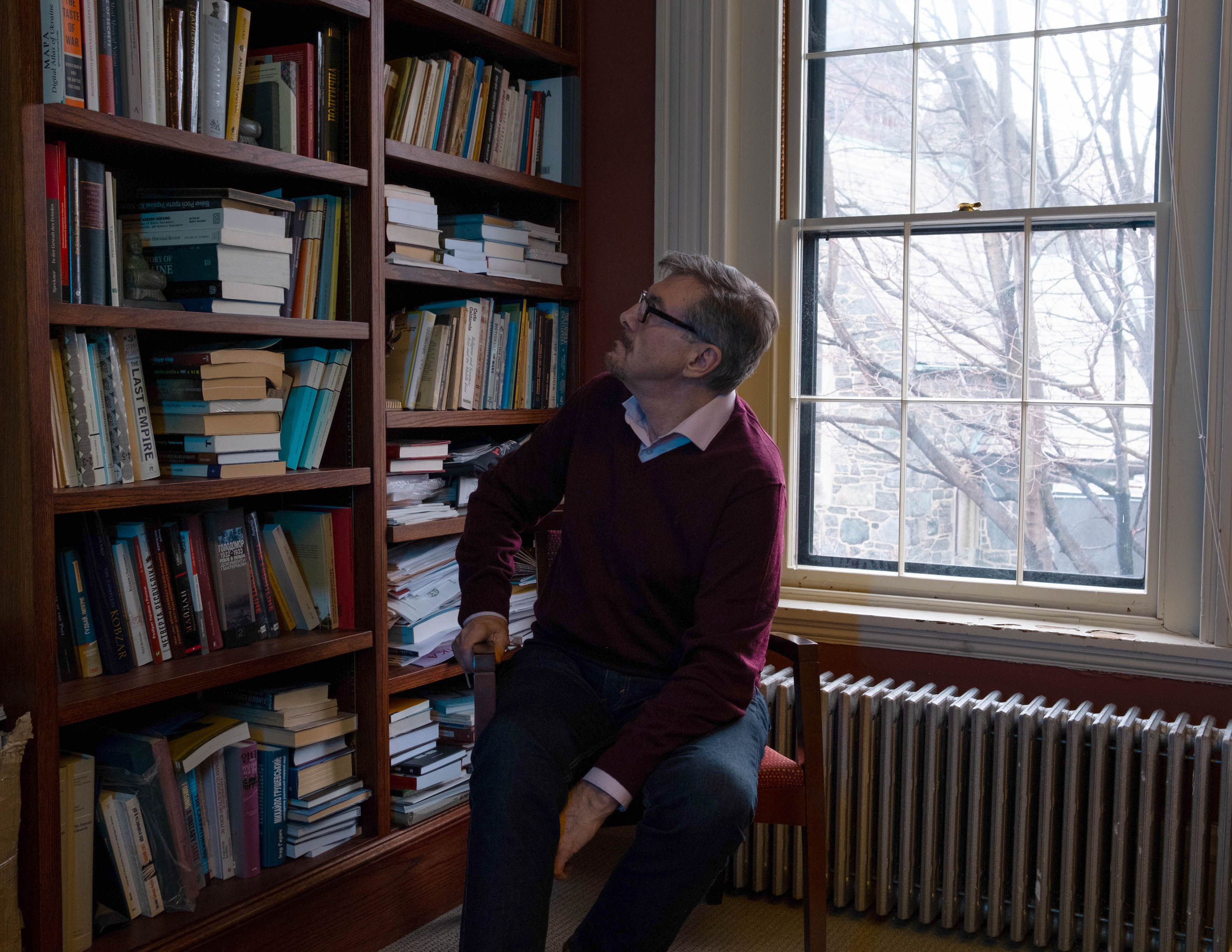
Who would have had more right to become the UPA’s symbol?
Bear in mind that you are asking a historian, and our profession dictates that we resist mythologization.
You can bust the myth while answering my question.
Hardly, but here is my answer.
For me, it’s important that we don’t have a monoreligion that represents just one political party or movement. Suppose we remove Bandera from the pedestal. Who could replace him? First of all, it’s the people, the embodiment of the will for freedom.
Thinking about this war now, we all (or at least most of us) agree that the people play the central role in the resistance, not the president. But once we go back to the 1940s, we somehow get triggered and want to simplify everything. This is why the myth of Bandera and the UPA we have today is so inflexible.
Could you explain that?
In 2014, Russia came to divide us, bringing the myth of the Great Patriotic War with it. It’s a highly flexible myth. To be a victory bearer and participate in the Immortal Regiment memorial march, you don’t have to be Stalinist or Communist. All you need is a connection to your family and its history or even a concrete person. That is to say that there is a mythology umbrella under which very different people gather.
The umbrella of the politicized UPA mythology is small. To get under it, you must follow just one person and ideology.
The umbrella of the politicized UPA mythology is small. To get under it, you must follow just one person and ideology.
Therefore, I believe it’s not a person that needs to be put on the pedestal, but the active part of the people who accepted responsibility and risks, starting to fight back. For example, those were the UPA fighters and commanders.
Consider this: the USA, a democratic country, has not one but multiple founding fathers. This situation is not devoid of problems, but it’s still better than the cult of one leader. It gives us more flexibility and historical context. And all that can inspire society to endure. I know it sounds complicated, but the principle is as simple as ‘forgoing the monopolization of the past by one person, or political party, is an advantage rather than a drawback’.
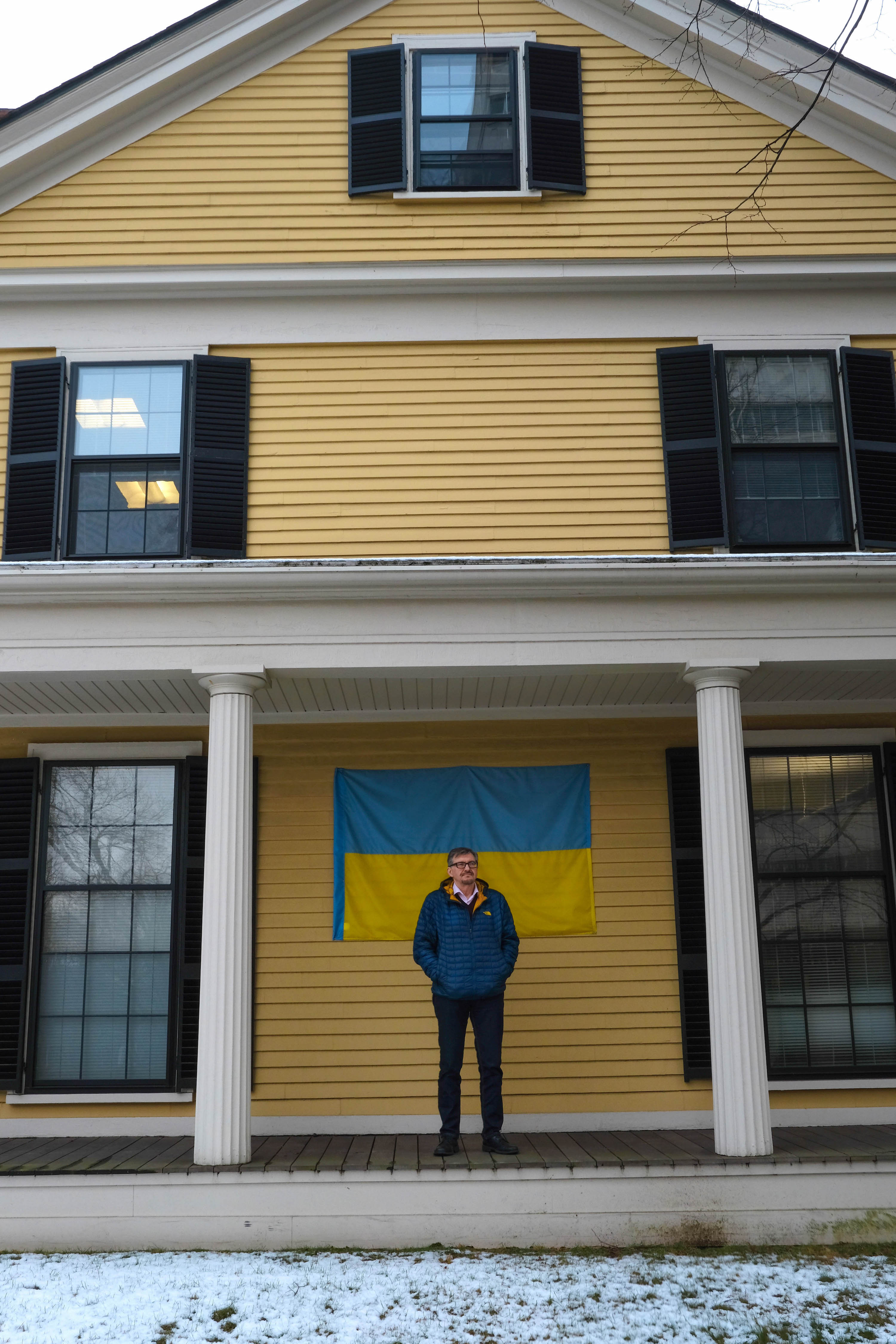
Many criticized you for being interviewed by Russian journalist Mikhail Zygar. How did you react?
I took it with a grain of salt. That criticism stems from stress, which is unavoidable during the war. However, I don’t live under shelling here, so I rely on rational thinking instead of acting under the pressure of stress. And rational thinking clearly suggests that we must talk to everybody, especially those who have a tangible impact on some part of Russian society. I’m also convinced those people will become even more influential.
We have to work with those who come to power in Russia after Putin unless there is a plan to move Ukraine or Russia to Mars.
And people will say, ‘We have been talking to them since 1991, and this is where we have ended up. Why continue?’
Because the results are rarely instant, and you won’t have any, or even a hope of getting something tomorrow, if you don’t make an effort today. In 1991, Ukraine declared its independence. And Yeltsin’s delegation immediately arrived in Kyiv to negotiate the status of Crimea. So, what did Kravchuk do? He asked the heads of the democratic wing of Verkhovna Rada to talk to Yeltsin’s entourage. They defused the situation, and the delegation returned to Russia, effectively accepting what had happened.
I mean that Russia and Ukraine didn’t go to war in 1991 for many reasons, but among them is that a part of Russia’s Democratic, not Communist, opposition managed to come to an agreement with their Ukrainian counterparts.
One reason no war happened in 1991 was that a part of Russia’s Democratic opposition came to an agreement with their Ukrainian counterparts.
Consider another example. The relations between Ukraine and Poland have historically been extremely tense. Where would we be if not for
Again, the people would say, ‘Russian democrats surrendered their country to Putin, and he took Crimea. What was the point of negotiating with them?’
‘Russian Democrats lost in the end-1990s, why talk to them now?’ is a weak argument. They indeed have lost now, but it doesn’t mean they will always lose. We have to look at ourselves and our neighbours from a historical perspective. It’s tough to do, especially during the war, but somebody has to do it.
Let me reiterate: I understand all the criticism of that interview. However, as a historian and somebody who has seen a lot in his life, including the changes that were hard to predict, I can’t let myself pass even the ghost of a chance to be heard today.
Photos: Ira Lupu, exclusively for Bird in Flight
a Ukrainian and Polish publicists and public figures who stood for reconciliation between Poland and Ukraine.
New and best
